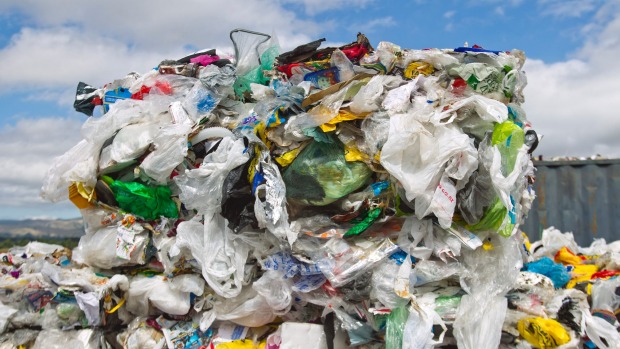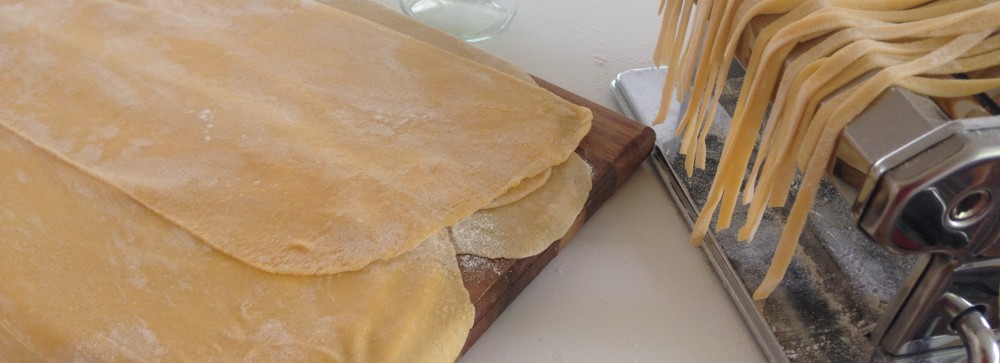I discovered something very exciting this weekend: my local supermarket, New World) is now offering a service that enables customer to recycle their soft plastics.
What are soft plastics? Essentially any plastic bag or plastic wrap, any plastic that you can scrunch up into a ball in your hand. Examples include:
- Bread bags
- Cereal bags and cereal box liners
- Biscuit packets
- Nappy packaing
- Chip bags
- Confectionery packets
- Pasta and rice bags
- Frozen food bags
- Plastic shopping bags
Bags are being collected at Auckland New World, Countdown, Warehouse and Pak’n Save stores, and currently are being shipped to Australian company REDcycle who process it before it gets turned into outdoor furniture and signage.

This is a boon for reducing non-compostable waste going to landfills, and also reduces soft plastics getting into waterways and oceans. I know this will reduce what I send to landfill, as there certainly are products that come in plastic packaging for which I have not found non-plastic alternatives as yet. Think bacon. Wasabi peas. Sigh.
While I’m all in support of this initiative for the reasons stated above, I’m cautious for two reasons:
1. Its effectiveness may limited as it is not a kerbside collection
Although this recycling initiative has Government support, it is not being run by local councils. Any recyclable scheme is likely to gain greater traction if it is a household kerbside collection. This system relies upon people remembering a) to collect their soft plastics and b) to take them to the supermarket. While this may not appear onerous, many people report major difficulty in remembering to take reusable shopping bags to the supermarket, and this is just one more thing. Some will make the effort, but many may not. This scheme does not make recycling as easy as it needs to be to be the most effective.
2. It legitimises plastic use
My biggest concern for such a system is that it legitimises plastic use when the greater goal should be phasing out plastic altogether and replacing it with a sustainable (compostable, no-trace) alternative.
There is a feel-good factor knowing that the plastic packaging I use is not longer going to landfill, but it is still plastic and the fact that I’m now recycling it is not a good reason for me to stop reducing my plastic consumption. In turn the companies that use the packaging to wrap their products are likely to also breath a sigh of relief: now they can correctly say ‘But look how environmentally friendly we are, our packaging can be recycled! We no longer have a need to seek alternatives.’ They can continue to use plastic with impunity as ‘recycling’ it usefully removes the waste problem they cause. But let’s not forget that recycled plastic food wrap cannot be turned into more plastic food wrap: it has to be ‘downgraded’, it has to be turned into something more basic. Here it is being turned into paving and outdoor fitness trails which themselves are unlikely to be recyclable (?). In this way the life of the plastic is being extended but the net result is plastic stays plastic and it is likely to end up in landfill at some point, albeit in a different form.
What is the alternative?
An alternative approach from the government would be to place a levy on plastic shopping bags or to ban them altogether. Such measures have been implemented in Northern Ireland, Scotland, Wales, California, with England recently introducing a plastic bag levy, Porto Rico due to ban all bags from mid-2016. Rwanda is exemplary, having banned plastic bags back in 2008. These real-life examples show us how effective even a levy can be, reducing plastic bag usage by 70-80%. The key is that these measures are changing that thing which is the hardest of all to change: people’s behaviour. People are suddenly going out of their way to avoid the extra charge: they are persuaded into finding alternatives. This is the change that is really needed: thinking differently, acting differently. Not creating the demand for the plastic in the first place, so stopping plastic bags from becoming a problem by stopping them from being. It’s the more grass-roots approach.
The good thing about the recycling option that New Zealand have chosen is that it includes plastic packaging that would not be impacted by a plastic bag ban: potato chip packets, rice and past packets, cereal box liners, biscuit wrappers and so on. The bad thing is that it encourages us to be accepting of plastic packaging, it doesn’t force us to change our behavior to seek alternatives.
I think it is a first step.
